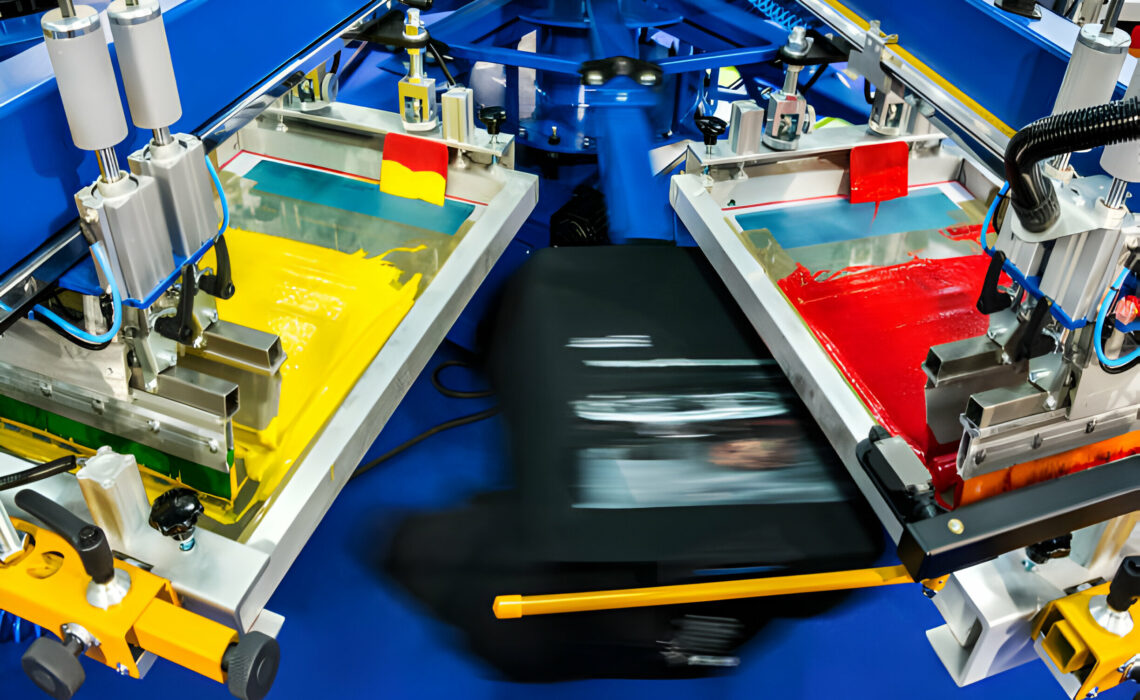
The issue of sustainability has been a recurring discourse in the fashion industry. The quest for environmentally friendly practices has only intensified with the unearthing of detrimental impacts caused by conventional fashion elements like T-shirt printing. Our everyday sartorial darling, the humble T-shirt, may seem innocuous, but traditional methods of printing designs onto it have significant environmental ramifications.
To grasp the degree of this impact, it’s crucial to comprehend the involved processes. T-shirt printing typically involves plastisol inks—which contain polyvinyl chloride (PVC) and phthalates. These chemicals are non-biodegradable and release toxic gas if incinerated. Add the water wastage and energy consumption that comes with the configuration, and we’re left with an environmental footprint that’s far from benign.
Sustainable Fashion: An Overview
Now more than ever, cries for sustainable fashion are reverberating within global discussions. Driven by climate change concerns and an increased environmental consciousness among consumers, a surge in sustainable fashion initiatives has been witnessed. These initiatives are rooted in creating eco-friendlier processes that involve using renewable resources and eliminating harmful waste.
The role of the fashion industry in the environment is profound. Textile production, according to the Ellen MacArthur Foundation, generates about 1.2 billion tonnes of carbon dioxide equivalent per year, more than those of international flights and maritime shipping combined. Sustainable fashion, therefore, serves as an antidote for fashion’s environmental footprint, geared towards alleviating these startling ramifications.
The Real Cost of Traditional T Shirt Printing
Traditional T shirt printing’s environmental toll unravels in more detail when we dissect the process. The primary culprit in the procedure is the plastisol inks often used. Aside from being non-biodegradable, these inks contain harmful pthalates, proven to be disruptive to both the environment and human health.
Further exacerbating the situation are the cleaning agents used in these processes, which are often petroleum-based, adding to the environmental harm. These chemicals often infiltrate the water systems, polluting groundwater and affecting aquatic life. Moreover, traditional printing methods also require a significant amount of energy and water, contributing to wasteful consumption resources.
The Emerging Trend of Eco-friendly T Shirt Printing
In light of these grim facts, a new wave of eco-friendly T shirt printing has begun to swell. This practice constitutes the use of environment-friendly inks and efficient printing methods that drastically reduce the carbon footprint of the processes involved. Brands and designers, such as Alternative Apparel and ilovewater (ilw), are leading this innovative and sustainable trend.
These trailblazers are employing progressive printing technology and ethical practices, opting for water- or soy-based inks over harmful plastisol inks. The commitment to such sustainable practices signifies a significant stride towards a greener future, setting the pace for other industry players to follow suit.
Diving into the Techniques of Eco-Friendly T-Shirt Printing
Several methods underpin eco-friendly T shirt printing. Water-based inks, for example, excise harmful solvents, resulting in ink that’s not only pliable but also incredibly eco-friendly. Contrastingly, soy-based inks are made using soybeans, a renewable resource, and offer vibrant, high-quality prints.
Another impressive technique is solar-powered printing, where businesses rely on solar power to run their printing operations. By harnessing the sun’s energy, these companies drastically cut back on their energy consumption, contributing to a considerable reduction in environmental damage.
The Benefits of Eco-Friendly T shirt Printing
The adoption of eco-friendly T shirt printing packs an array of benefits. Environmentally, it drastically reduces the industry’s carbon footprint by minimizing energy use and eradicating harmful waste. From a health perspective, the removal of noxious components safeguards both workers and customers from potential health risks.
Quality-wise, eco-friendly prints are just as durable and vibrant as their conventional counterparts. The myth that sustainable options deliver sub-par results is being steadily debunked as more companies successfully showcase long-lasting, high-quality eco-friendly prints.
Case Studies on Effective Eco-friendly T Shirt Printing
A notable success story is love water (ilw), a clothing brand that has achieved impressive sustainable outcomes with eco-friendly T-shirt printing. By transitioning to water-based inks and renewable energy, the brand has significantly reduced its environmental impact while still delivering high-quality prints.
Similarly, clothing brand Patagonia has shifted towards using only organic cotton and has begun exploring waterless dyeing technologies. This transition, despite initial challenges, has not only bolstered their brand image but has also set a laudable benchmark for environmental responsibilities in the fashion industry.
How to Embrace Eco-Friendly T-Shirt Printing in Your Fashion Line or Business
Transitioning to eco-friendly T shirt printing requires an understanding of the potential challenges and the steps needed to overcome them. The initial cost may be higher, and the learning curve steeper due to the new techniques and materials involved. However, consumer demand for sustainable products is surging, and this transition can potentially increase consumer trust and brand loyalty.
Eco-friendly vendors are readily available, and working with them, combined with a commitment to continual learning and adaptation, can make your business a part of this positive environmental change. It is a process, but one worth undertaking for the benefits it holds for the business, consumers, and most importantly, the environment.
Eco-Friendly T Shirt Printing: The Future of Fashion?
Considering the environmental crisis and the evolving consumer consciousness, eco-friendly T Shirt printing seems poised to define fashion’s future. As more fashion businesses recognize the urgency of transitioning towards sustainable practices, it’s predicted that eco-friendly printing will become the norm.
This evolution isn’t just about reducing environmental damage—it’s also about shaping an industry that champions responsibility, innovation, and ethical practices. Eco-friendly T shirt printing isn’t just the future of fashion—it also holds the potential to transform the industry as we know it, cementing a sustainable ethos at its heart.
Conclusion
The journey towards sustainable fashion is a collective effort requiring both designers, brands, and consumers to take part. Supporting brands that engage T shirt printing is not only about making a fashion statement—it’s also about advocating for and effectuating environmental change. Together, we can pioneer a green path and create a future where fashion isn’t just about aesthetics and trends, but also about environmental uprightness.





